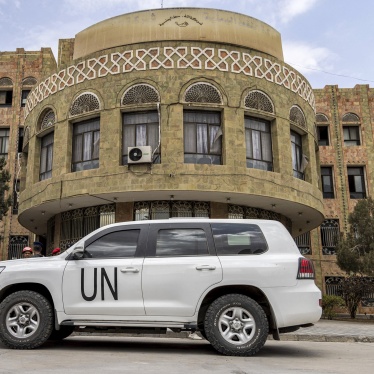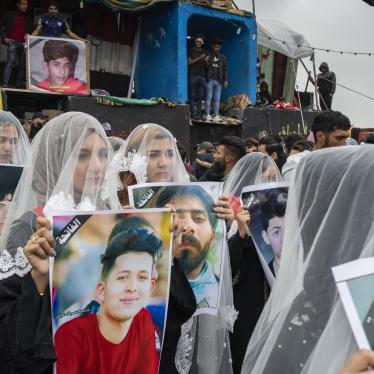The election of Mohamed Morsi marks the first partial transfer of authority to an elected, civilian president since the ouster of Hosni Mubarak in February 2011. Morsi is also the first Egyptian without a background as an army general to become president since independence.
Serious concerns remain however about the extent to which the military will continue to interfere with civilian authority in Egypt, given recent military decrees that expanded the military’s role and granted it legislative authority after the court-ordered dissolution of Parliament. The military has given itself a substantive role in the constitution-drafting process, including the power to veto proposed provisions. The decree on June 17 by the Supreme Council of the Armed Forces (SCAF), which it called a “Constitutional Declaration,” greatly expands the military’s powers in domestic law enforcement (article 53 of the decree). A June 18 decree re-structured the defunct National Defense Council, giving the military a controlling role on as yet-undefined issues of national security, further limiting civilian oversight.
Human Rights Watch has also documented a continued widespread torture committed by the military during arrests and toward detainees in the year and-a-half since Mubarak’s ouster, most recently in Abbasiya in May, and before that, brutal beatings of male and female protesters in December 2011. On March 9, 2011, military officers beat and whipped dozens of male protesters and the next day subjected female protesters in military detention to virginity tests. In October, Human Rights Watch documented the excessive use of force by the military in policing protests, as well as the killing of protesters by military armored personnel carriers at Maspero in Cairo. The lack of civilian oversight of the military’s involvement in law enforcement and the fact that civilian prosecutors have no jurisdiction to investigate military abuses has already led to a climate of impunity that encourages such abuses.
The June 26 Administrative Court decision striking down the June 4 Ministry of Justice decree that authorized the military to arrest civilians is a positive development and an important precedent. Human Rights Watch calls upon the Egyptian authorities to respect this ruling and not to appeal it since the military’s renewed involvement in civilian law enforcement under Article 53 would be an invitation to further human rights abuses, committed with impunity. During the past year and-a-half, over 12,000 civilians have been tried by military courts, where their fair-trial guarantees are compromised.
Egypt’s new president has an opportunity to rein in the widespread abuses that have continued in Egypt after Mubarak’s ouster. He also has an opportunity to shift Egypt’s role at the U.N. Human Rights Council toward promoting human rights globally, away from its past tendency to shield most abusive governments from criticism. President-elect Morsi has an opportunity to break with the abusive record of the past 16 months and insist on respect for the rule of law and on the investigation and, where warranted, prosecution of members of the security force responsible for acts of torture and of civilian perpetrators responsible for sectarian violence. Human Rights Watch also urges President-elect Morsi to commit to protecting freedom of expression including the right to criticize public officials, and the rights of women and children as defined by international treaties, and to protect civil society by allowing Egyptian and international NGOs to register and operate freely without harassment or discrimination.






